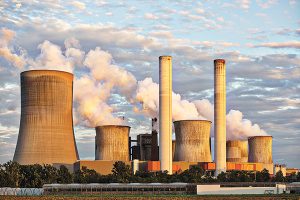Bloomberg
French electricity prices climbed after the region’s biggest producer cut its nuclear output target for a third time this year, the latest sign that the region’s power crisis is worsening.
Less output from Electricite de France SA’s fleet, the backbone of Europe’s integrated power system, is sending prices higher just as soaring inflation is pushing up costs for everything from gasoline to food. It could get even worse in winter as France, traditionally an exporter of electricity, may be forced to import more from its neighbours.
French power contracts for the fourth-quarter jumped as much as 8.6% after EDF lowered its annual target for this year to 280 to 300 terawatt-hours from 295 to 315 terawatt-hours previously. French prices are the most expensive in Europe, with contracts for the period almost double levels in Germany.
The utility cut its forecast as it realised that “stress corrosion†issues affecting some of its reactors will require more checks and repairs. The outlook for the following year remains unchanged for now, the firm said.
“We fine-tuned the repairs to be made,†Regis Clement, deputy head of the company’s nuclear division, said during a media conference. “We’ve got to cut more pipes†to carry out further checks “and more repairs to handle,†he said. Western Europe has for decades relied on exports of power from EDF’s nuclear fleet. The cuts are another blow to European energy security just as the region is weaning itself off Russian supplies of everything from natural gas to coal and oil because of the war in Ukraine.
The big test will come when temperatures start to fall towards the end of the year. It won’t take many days of cold weather to jeopardise French power supplies, according to Emeric de Vigan, chief executive officer at French energy analysis firm COR-e. “Which such poor nuclear availability, if we reach 2 degrees Celsius below normal in the winter for a few days we could be in trouble, it would be really tight,†de Vigan said.
About half of EDF’s 56 reactors are currently halted.
EDF’s newer reactors seem to be most affected because of the design of some of their piping, which is longer and more convoluted, Clement said.
 The Gulf Time Newspaper One of the finest business newspapers in the UAE brought to you by our professional writers and editors.
The Gulf Time Newspaper One of the finest business newspapers in the UAE brought to you by our professional writers and editors.
